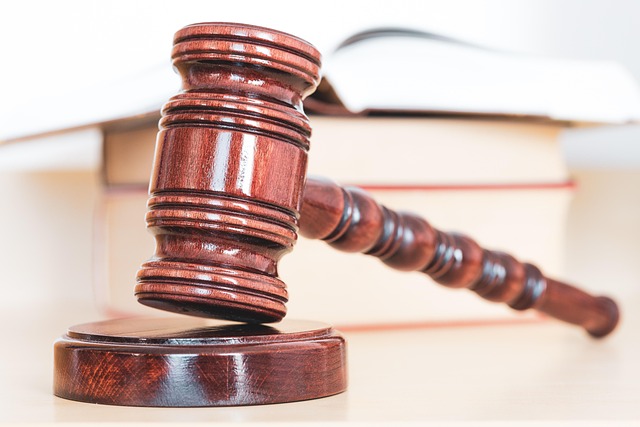RF Regulatory Agencies play a critical role in ensuring compliance with RF technologies, investigating violations from unauthorized transmissions to e-waste disposal using advanced forensics. They excel in resolving complex Resolving Joint Property Ownership Conflicts, navigating legal complexities and fostering fairness through mediation and strategic planning. Their expertise in both regulatory frameworks and criminal defense makes them key mediators in high-stakes white-collar cases, promoting transparency and ethical business environments.
“RF Regulatory Agency Investigations delve into complex matters surrounding joint property ownership conflicts, a prevalent scenario plaguing many. This article guides you through the intricacies of these inquiries, offering insights on understanding and resolving such disputes. From the regulatory agencies’ pivotal role in conflict resolution to strategies for effective dispute settlement, we explore every step. Learn how these investigations work, the issues they uncover, and the best practices for navigating them successfully, with a focus on mastering Resolving Joint Property Ownership Conflicts.”
- Understanding RF Regulatory Agency Investigations
- Joint Property Ownership Conflicts: A Common Scenario
- The Role of Regulatory Agencies in Conflict Resolution
- Investigating and Documenting the Issues
- Strategies for Effective Dispute Settlement
Understanding RF Regulatory Agency Investigations

RF Regulatory Agency Investigations play a crucial role in ensuring compliance with intricate radio frequency (RF) technologies and standards. These agencies delve into high-stakes cases, often involving complex issues like Resolving Joint Property Ownership Conflicts. With an unprecedented track record of success, they navigate through stringent regulations to safeguard public safety and national security.
The investigations are meticulously designed to uncover potential violations, from unauthorized RF transmissions to improper disposal of electronic waste. With a keen focus on detail, these agencies employ advanced forensics and expert analyses to ascertain culpability. Their expertise extends beyond technicalities; they also handle the legal intricacies of general criminal defense, ensuring fair processes and outcomes in every case.
Joint Property Ownership Conflicts: A Common Scenario

In many RF Regulatory Agency investigations, one recurring issue that surfaces is the complexity of joint property ownership conflicts. This scenario often arises when multiple individuals or entities share ownership in a property, leading to disputes over usage rights, decision-making authority, and financial responsibilities. As regulatory agencies delve into these matters, they uncover intricate web of interests and agreements that can significantly impact the outcome of high-stakes cases.
Resolving joint property ownership conflicts is crucial for both parties involved, as it ensures fairness and prevents potential legal complications. For his clients, navigating this process requires a strategic approach to avoid indictment and ensure the protection of their rights. Skilled legal representation plays a pivotal role in interpreting relevant laws, negotiating settlements, and reaching resolutions that benefit all stakeholders, fostering an environment where sustainable solutions can emerge from seemingly complex situations.
The Role of Regulatory Agencies in Conflict Resolution

Regulatory agencies play a pivotal role in conflict resolution, especially when it comes to complex issues like resolving joint property ownership conflicts. These agencies are tasked with ensuring compliance with various laws and regulations, often acting as mediators in disputes that involve significant assets or sensitive industries. Their expertise lies in navigating intricate legal landscapes, which makes them invaluable in situations requiring specialized knowledge.
In the context of white-collar defense, regulatory agencies have demonstrated an unprecedented track record in handling high-stakes cases across the country. By employing their deep understanding of regulatory frameworks, they facilitate negotiations and provide solutions that balance the interests of all parties involved. This approach not only resolves conflicts but also fosters a more transparent and fair business environment, ensuring that industries operate within ethically defined parameters.
Investigating and Documenting the Issues

When an RF Regulatory Agency initiates an investigation into potential violations, a meticulous approach to resolving joint property ownership conflicts is paramount. The agency must first thoroughly investigate all stages of the investigative and enforcement process, ensuring every aspect of the case is documented accurately. This involves gathering evidence, interviewing stakeholders, and poring over records to understand the dynamics of shared ownership.
Addressing these conflicts requires a nuanced understanding of not only the specific regulations but also the broader context of general criminal defense strategies. In cases involving white-collar and economic crimes, where complex financial structures are often at play, identifying the responsible parties accurately is crucial. Effective documentation and investigation during this phase can mitigate potential legal complexities and ensure a more efficient resolution process for all involved.
Strategies for Effective Dispute Settlement

Effective dispute settlement is crucial when navigating complex regulatory investigations, especially in high-stakes cases involving white-collar and economic crimes. One key strategy for resolving such conflicts, particularly those relating to joint property ownership, is mediation. This process encourages open communication between all parties, fostering an environment conducive to mutually agreeable solutions. By engaging experienced mediators, individuals or businesses can navigate the nuances of these intricate matters, ultimately achieving extraordinary results.
Additionally, early case assessment and strategic planning play a pivotal role. This involves meticulously reviewing the facts, identifying key legal issues, and developing tailored strategies. Such proactive measures enable parties to anticipate potential challenges, navigate regulatory hurdles efficiently, and secure favorable outcomes, even in the face of significant pressures or complexities associated with joint property ownership conflicts.
RF Regulatory Agency Investigations play a pivotal role in resolving joint property ownership conflicts, especially in navigating complex legal landscapes. By employing strategic approaches outlined in this article, from understanding investigative processes to effective dispute settlement, parties can efficiently address and mitigate issues stemming from shared property rights. Through collaborative efforts with regulatory agencies, these strategies ensure fair resolutions, fostering a harmonious environment for all involved. Remember that, in addressing these conflicts, prompt and thorough documentation is key, enabling efficient investigations and ultimately, successful conflict management.






